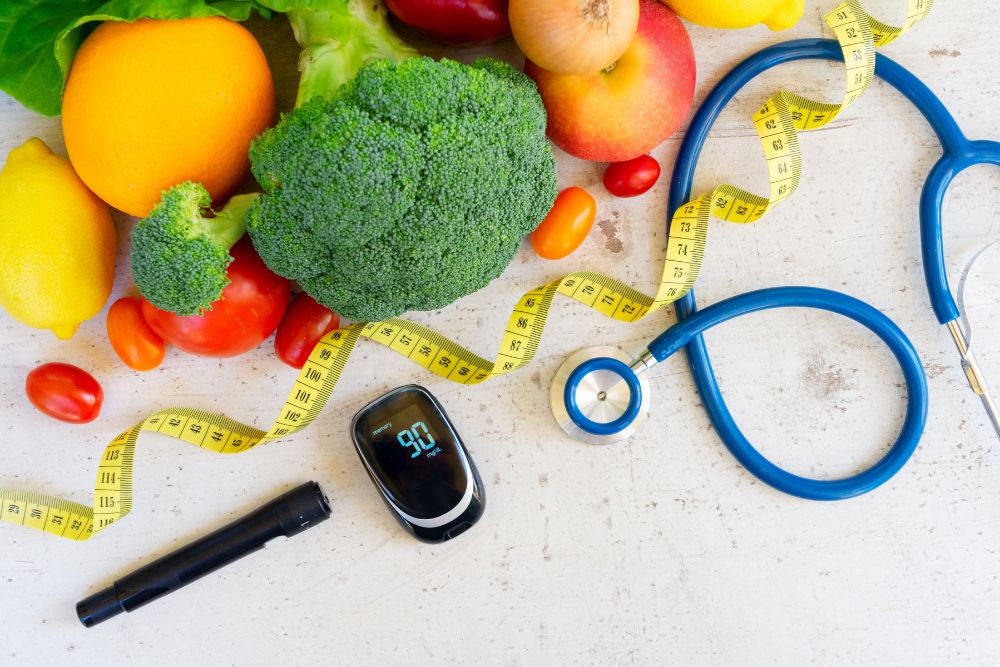Life with Diabetic Retinopathy: Diet, Exercise, and Blood Sugar Control

More than half of people with diabetes will develop diabetic retinopathy at some point in their lives. Diabetic retinopathy is caused by high blood sugar from diabetes and affects the retina, which is the part of your eye that detects light and sends signals to your brain. The best way to reduce your risk is to keep your blood sugar levels in a healthy range. Staying active, eating a well-balanced diet, and taking your insulin or other diabetes medications properly can help manage diabetic retinopathy and prevent vision loss.
A Healthy Diet and Diabetic Retinopathy
There is no guarantee that a proper diet will prevent diabetic retinopathy. However, food plays a key role in managing diabetes, and a well-balanced diet can promote strong overall eye health. Foods rich in omega-3 fatty acids like fish, chia seeds, and walnuts, as well as fresh fruits and green, leafy vegetables can help lower A1C levels and overall reduce the risk of developing diabetes-related complications like diabetic retinopathy.
Staying Active to Manage Diabetes
Staying active can also help delay the onset and progression of diabetic retinopathy. People with diabetes should get at least 150 minutes of moderate-intensity physical activity weekly, such as swimming, jogging, or bicycling. It’s important to consult your doctor before officially starting any exercise routine.
Controlling Blood Sugar
Managing your blood sugar is crucial for controlling diabetes and preventing or slowing the progression of diabetic retinopathy. Poorly managed diabetes can also lead to other eye conditions such as cataracts and glaucoma. Therefore, it's important to monitor your blood sugar levels, take medications as prescribed, and maintain a healthy blood pressure.
Keep Up With Regular Diabetic Eye Exams
Diabetic patients should undergo a comprehensive dilated eye exam every year. Regular screenings increase the likelihood of detecting diabetic retinopathy in its early stages, which can lead to better vision outcomes. However, if you notice any sudden changes in your vision, it's important to see your retina specialist immediately.
Effectively Manage Diabetic Retinopathy
A well-balanced diet, adequate exercise, and proper management of blood sugar levels can help you control diabetic retinopathy and preserve your vision. At The Retina Eye Center, our experienced team of retina specialists can diagnose and help treat diabetic retinopathy. (link: https://www.retinaeyecenter.com/contact text: Contact us today for more information or to schedule an appointment.
